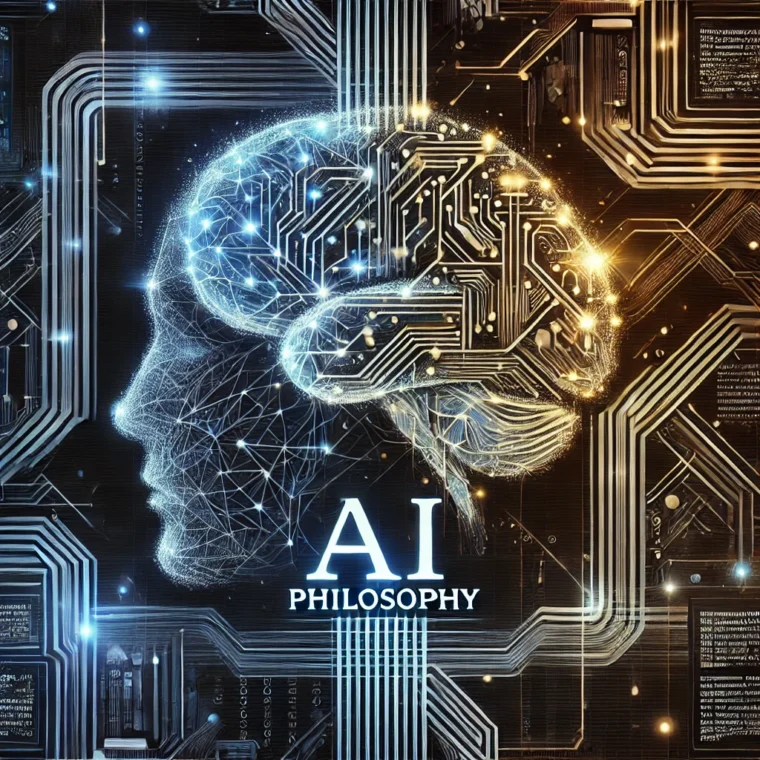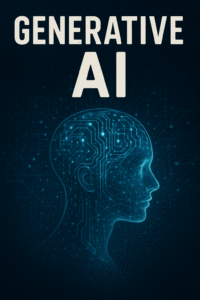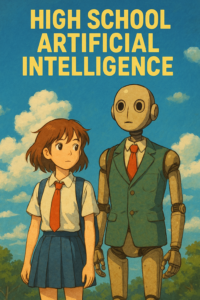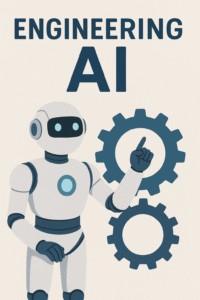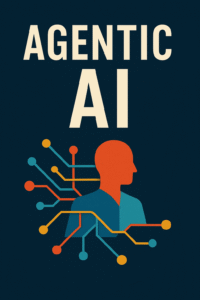Artificial Intelligence (AI) is not merely a technical innovation but also a profound philosophical subject. As machines become more capable of performing tasks that once required human intelligence, they raise fundamental questions about consciousness, free will, ethics, and the nature of knowledge. AI philosophy investigates these issues, offering a framework to understand how machine intelligence challenges and complements traditional human-centered perspectives.
1. The Origins of AI Philosophy
The philosophical discourse around AI predates the technology itself. As early as the 17th century, thinkers like René Descartes and Gottfried Wilhelm Leibniz speculated about the potential of machines to emulate human reasoning. Descartes’ dualism, which distinguishes between mind and body, has shaped debates on whether machines can ever possess true intelligence or consciousness, given that they lack a mind in the Cartesian sense. Leibniz’s calculating machine and his analogy of the human brain as a kind of machine laid early groundwork for the mechanization of thought.
The advent of digital computers in the mid-20th century gave new life to these philosophical ideas. With Alan Turing’s seminal 1950 paper, “Computing Machinery and Intelligence,” the discussion shifted from metaphysical questions to practical ones. Turing introduced the idea that machines could think if their behavior was indistinguishable from humans—a concept now known as the Turing Test. This pragmatic approach to AI philosophy marks a key shift: rather than focusing on whether machines can possess minds, philosophers began exploring whether they can simulate intelligence effectively.
2. Consciousness and Machine Intelligence
One of the most enduring questions in AI philosophy is whether machines can ever be truly conscious. While AI has made strides in performing tasks that simulate human thinking—such as playing chess, composing music, or diagnosing diseases—there is a significant gap between simulating intelligent behavior and experiencing consciousness.
Philosophers like John Searle argue that computers can never be truly conscious because they lack intentionality—the ability to understand or be aware of their actions. Searle’s famous Chinese Room Argument asserts that even if a computer could convincingly mimic human conversation in Chinese, it does not actually “understand” Chinese. It merely follows rules and manipulates symbols without any comprehension, much like a person in a room following an instruction manual to respond in Chinese. This critique challenges the notion that passing the Turing Test (which measures external behavior) implies actual understanding or consciousness.
On the other hand, some thinkers embrace a form of functionalism, which posits that mental states are defined by their functional roles, not by the specific materials that embody them. If human consciousness is simply a function of neural processes, then, in theory, an artificial system could one day be constructed to replicate these functions, leading to machine consciousness.
3. Ethics and Moral Responsibility
As AI systems become more autonomous, they raise ethical questions about decision-making and moral responsibility. Autonomous vehicles, for example, must make real-time decisions that affect human lives. If a self-driving car must choose between two harmful outcomes—say, hitting a pedestrian or crashing into another vehicle—who is morally accountable for the decision? Is it the car’s manufacturer, the programmer who coded the algorithm, or the AI system itself?
This dilemma extends to other domains, such as AI in warfare, healthcare, and law enforcement. Should machines be entrusted with life-and-death decisions? And if an AI system causes harm, can it be held responsible in the same way a human would be? Philosophers grapple with the concept of machine ethics, trying to understand if machines can be moral agents or whether their decisions should be viewed as extensions of human agency.
One proposed solution is to design ethical AI systems that incorporate moral decision-making frameworks, but this raises further philosophical questions. Can a machine truly “understand” moral principles, or is it merely executing predefined rules? Furthermore, whose moral framework should guide AI systems—given that ethical standards can vary across cultures and individuals?
4. The Nature of Knowledge: AI and Epistemology
AI philosophy also touches on epistemology, the study of knowledge. The rapid development of machine learning systems, particularly in areas like natural language processing and pattern recognition, forces us to reconsider what it means to “know” something. When an AI system is trained on vast amounts of data and identifies patterns that human scientists may not have noticed, does the machine “know” the information, or is it simply processing data?
Consider the example of AlphaGo, the AI developed by Google DeepMind that defeated the world champion Go player in 2016. The system used deep learning to analyze millions of Go games and develop strategies that no human player had ever conceived. Does AlphaGo “understand” Go in the same way a human player does, or is it simply processing inputs and outputs without comprehension? Philosophers and AI researchers are still debating how machine learning relates to human cognition and the concept of knowledge.
Moreover, the rise of AI-generated art, music, and writing raises questions about creativity and originality. If a machine can produce a novel or a symphony that rivals human output, does this constitute genuine creativity? Or is creativity a uniquely human trait that machines can never replicate?
5. The Future of Human-Machine Relations
As AI systems become more integrated into our daily lives, the boundary between human and machine is increasingly blurred. Some futurists envision a world in which humans and machines coexist symbiotically, with AI enhancing human capabilities in fields like medicine, education, and entertainment. Transhumanist philosophers advocate for the merging of human consciousness with machines, enabling people to transcend biological limitations through AI-driven enhancements.
On the other hand, critics warn about the risks of creating superintelligent AI systems that could surpass human control. Nick Bostrom, in his book Superintelligence, explores the potential dangers of creating AI systems that, once they surpass human intelligence, could act in ways that are unpredictable or even harmful to humanity.
A comparative analysis of Artificial Intelligence (AI) and human philosophies
A comparative analysis of Artificial Intelligence (AI) and different human philosophies reveals fascinating insights into the nature of intelligence, consciousness, ethics, and the essence of reality. Philosophical thought has long explored these concepts, but AI presents new ways to frame and reconsider these age-old questions. Below, section provides an analysis of AI in relation to key human philosophies, focusing on how AI aligns or contrasts with these ideas.
1. Rationalism vs. AI
Rationalism emphasizes that reason is the primary source of knowledge, often downplaying sensory experience. Philosophers like René Descartes argued that humans can derive truths through logical reasoning. AI, particularly in its traditional rule-based forms, can be seen as an extension of rationalist principles.
Comparison:
- AI simulates rationalism by using algorithms to deduce, infer, and process information logically.
- However, unlike rationalist thinkers, AI lacks the self-awareness or understanding that underpins human reasoning.
- AI doesn’t possess innate ideas as rationalists propose; it relies entirely on data inputs and pre-defined rules for knowledge acquisition, lacking an inherent concept of truth or meaning.
Contrast:
While rationalists believe in reason as an innate human capability, AI relies on external programming to perform tasks that mimic reasoning. AI’s “reasoning” is restricted to its design and lacks the deeper introspection that rationalism values in human cognition.
2. Empiricism vs. AI
Empiricism, led by thinkers like John Locke and David Hume, asserts that knowledge comes from sensory experience and observation of the world. AI, especially machine learning systems, follows a model similar to empiricism, learning from large datasets and patterns derived from experiences (training data).
Comparison:
- AI, particularly in the realm of machine learning, exemplifies the empirical model by learning from data rather than starting with preconceived notions or internal rules.
- AI can generate models of the world based on the input it receives, much like how an empiricist views knowledge as built up through cumulative experiences.
Contrast:
While AI mimics the empirical process, it does so without conscious experience. Empiricism emphasizes sensory experience, which AI does not possess—AI merely processes input without any subjective experience or awareness of the data it analyzes.
3. Dualism vs. AI
Dualism, championed by René Descartes, separates the mind and body into distinct entities: the physical (body) and the non-physical (mind or soul). Descartes believed that while machines can imitate physical behavior, they cannot possess consciousness or thought like humans.
Comparison:
- AI aligns with the physical side of dualism, representing complex machinery capable of performing tasks traditionally associated with the body, such as recognizing images, processing language, or playing chess.
- According to dualist philosophy, AI can never achieve the non-physical, conscious aspect of the mind. It may replicate behaviors but lacks the subjective, reflective experience that defines human thought.
Contrast:
AI, as a purely physical system, challenges dualism by suggesting that certain aspects of the mind, such as problem-solving or decision-making, can be mechanized. However, from a dualist perspective, AI cannot possess the essence of consciousness or self-awareness that is distinct from physical processes.
4. Functionalism vs. AI
Functionalism is a philosophy of mind that suggests mental states are defined by their functional roles rather than by their internal constitution. According to functionalism, the mind could be instantiated in a variety of physical forms, potentially including AI systems.
Comparison:
- AI fits well into the functionalist framework, as functionalism does not require the mind to be biologically based; rather, it focuses on the functionality of mental states. If AI can perform tasks that are functionally equivalent to human thought, it may be considered intelligent in a functionalist sense.
- Advanced AI systems, such as those utilizing neural networks, could be seen as functional analogs to the human brain, performing tasks based on input-output relationships that mimic human cognitive processes.
Contrast:
Functionalism does not necessarily require consciousness or subjective experience, which AI lacks. Therefore, while AI may meet the functionalist criteria for intelligence, it still does not address the qualitative aspects of human experience (i.e., qualia), which many argue are integral to being truly “mindful.”
5. Existentialism vs. AI
Existentialism, especially as articulated by thinkers like Jean-Paul Sartre and Friedrich Nietzsche, emphasizes individual freedom, consciousness, and the subjective experience of existence. Existentialists argue that human beings are defined by their choices, free will, and the ability to create meaning in an otherwise indifferent universe.
Comparison:
- AI lacks the key existential components of free will, consciousness, and the ability to create meaning. AI does not make choices based on a personal understanding of purpose or meaning; instead, its decisions are governed by programming and data-driven algorithms.
- Existentialists might argue that AI cannot experience existence in the way humans do. Humans define themselves through their actions and choices, while AI performs tasks based on pre-programmed instructions.
Contrast:
Existentialism emphasizes the subjective, self-determining nature of existence, which AI fundamentally lacks. While AI can perform tasks efficiently, it does not have the freedom to act outside its programmed functions or the capacity to experience existential angst or self-reflection.
6. Pragmatism vs. AI
Pragmatism, as promoted by philosophers like John Dewey and William James, asserts that ideas and theories should be judged based on their practical applications and results. Pragmatists focus on what works in the real world rather than searching for absolute truths.
Comparison:
- AI aligns with pragmatism in many ways because AI systems are valued for their utility and practical problem-solving capabilities. Machine learning algorithms, for example, are judged by their effectiveness in tasks like image recognition, language translation, or medical diagnosis.
- AI systems are developed and refined based on trial and error, similar to the way pragmatists emphasize adapting ideas to real-world applications.
Contrast:
Pragmatism values the human experience of learning and adapting through lived experience, while AI learns through data-driven optimization. Though similar in process, the absence of consciousness in AI makes it fundamentally different from human pragmatic learning.
7. Ethics (Deontological and Utilitarian) vs. AI
In ethics, deontological and utilitarian frameworks offer contrasting views. Deontology, as developed by Immanuel Kant, emphasizes duty and rules, while utilitarianism, as articulated by Jeremy Bentham and John Stuart Mill, focuses on maximizing overall happiness or utility.
Comparison:
- AI systems can be programmed to follow ethical guidelines (deontological) or maximize certain outcomes (utilitarian), such as minimizing harm in autonomous vehicles or optimizing resources in healthcare.
- Utilitarian AI systems use data to optimize outcomes based on predefined metrics, echoing utilitarianism’s focus on results. Deontological principles, on the other hand, could be embedded as hard constraints that the AI cannot violate, ensuring it adheres to specific moral rules.
Contrast:
AI lacks the ability to internalize ethical principles or understand moral consequences. While it can optimize for outcomes or follow rules, AI systems do not possess moral awareness or the capacity for ethical reflection. This limits their ability to engage in nuanced moral reasoning, which often requires human empathy and judgment.
Conclusion
The comparison between AI and human philosophies reveals deep contrasts and occasional overlaps. AI, in many ways, reflects human approaches to reasoning, learning, and decision-making, but it also lacks the subjective consciousness, ethical awareness, and freedom that define human philosophical thought. As AI advances, these philosophical questions become increasingly relevant, forcing us to reconsider the boundaries of intelligence, ethics, and existence in a world where machines play an ever-growing role in shaping human life.

